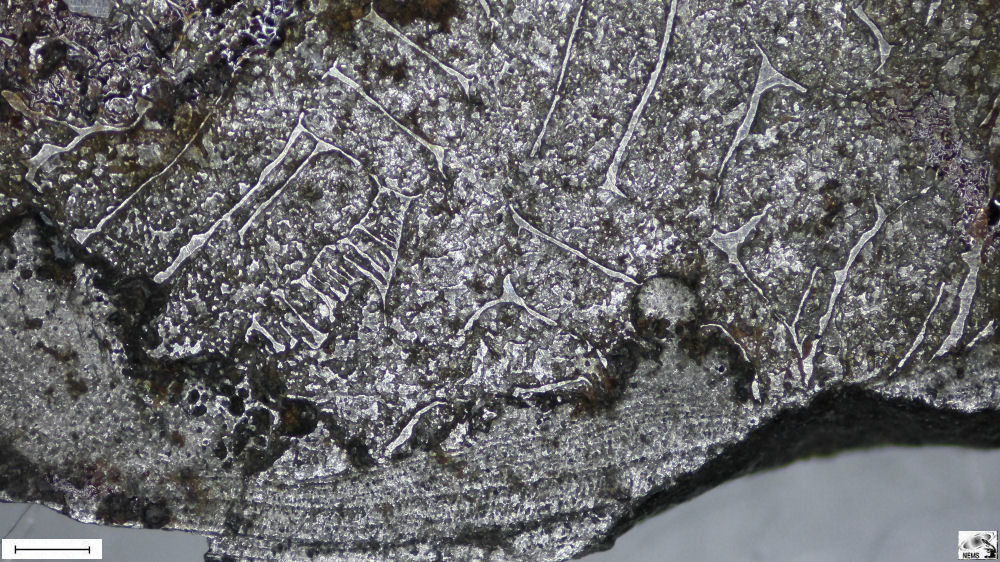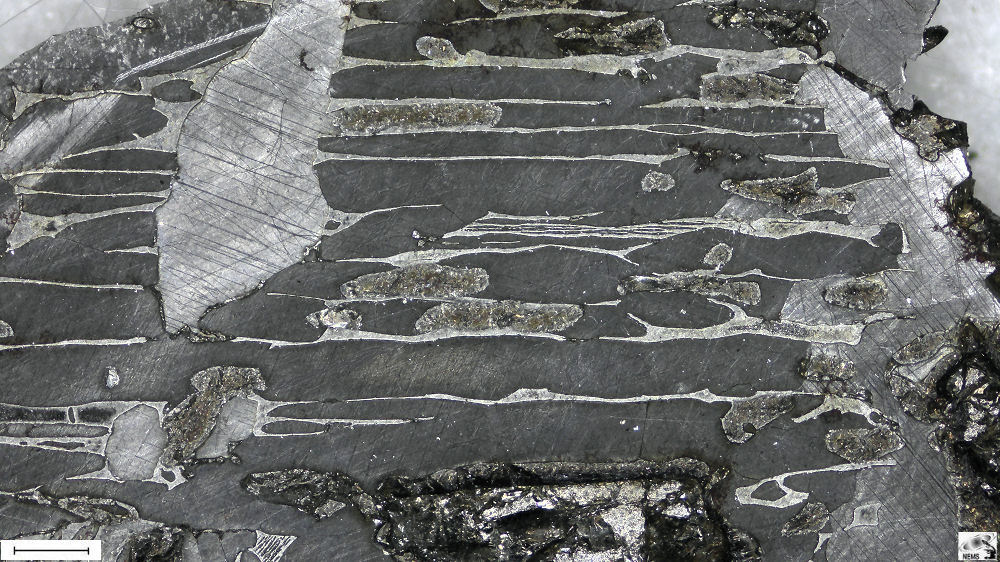The terms "taenite
lamellae" and "taenite ribbons" both describe structures
observed in iron meteorites, though they refer to slightly distinct features
shaped by the meteorite's cooling history.
Taenite lamellae are thin, plate-like layers of
taenite that develop within the meteorite through an exsolution procss during
cooling. As the meteorite cools slowly, kamacite-a phase with lower nickel
content-separates from taenite, which has a higher nickel content. This
exsolution forms thin taenite plates embedded within a kamacite matrix,
contributing to the intricate Widmanstätten pattern characteristic of iron
meteorites.
Taenite ribbons, in contrast, are elongated,
ribbon-like bands of taenite that emerge as the meteorite cools. These
structures form as part of complex phase transformations. Initially, taenite
exists as thick bands or ribbons. As cooling progresses, kamacite begins to
crystallize within the taenite at lower temperatures, growing at the expense of
the surrounding taenite. This process reduces the taenite's thickness,
transforming the once-thick bands into thinner ribbons or lamellae. The result,
visible in photographs, is a striking interlaced pattern of slender taenite
ribbons alongside broader kamacite bands.
The final arrangement of taenite and kamacite
reflects a balance between these two phases, influenced by the meteorite's
cooling rate and original composition. The thickness and distribution of each
phase ultimately depend on these factors, shaping the meteorite's
microstructure.
|


